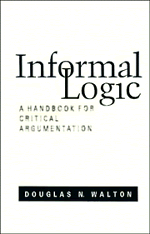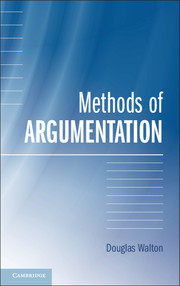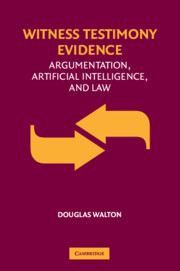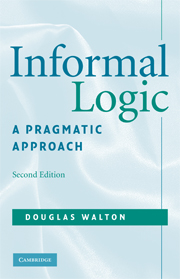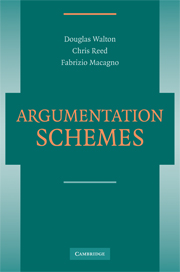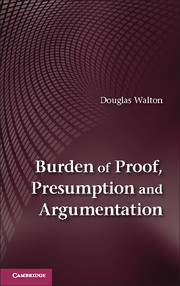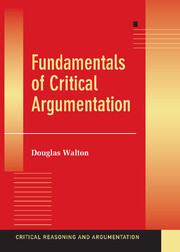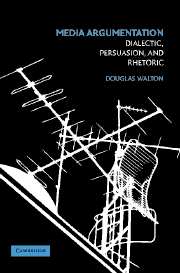Informal Logic
This is an introductory guidebook to the basic principles of how to construct good arguments and how to criticeze bad ones. It is non-technical in its approach and is based on 150 key examples, each discussed and evaluated in clear, illustrative detail. Professor Walton, a leading authority in the field of informal logic, explains how errors, fallacies, and other key failures of argument occur. He shows how correct uses of argument are based on sound strategies for reasoned persuasion and critical responses. Among the many subjects covered are: forms of valid argument, relevance, appeals to emotion, personal attack, uses and abuses of expert opinion, problems in deploying statistics, loading terms, equivocation, arguments from analogy, and techniques of posing, replying to, and criticizing questions. The book will be ideally suited to courses in informal logic and in the introduction to philosophy. It will also prove valuable to studetns of pragmatics, rhetoric, and speech communication.
Reviews & endorsements
'The book's unique philosophic thrust under the rubric 'logical pragmatics' renders it quite suitable as a text for an introduction to philosophy course. When I have the occasion to teach informal logic again, Walton's book will definitely replace the one I have been using. In a word, Informal Logic: A Handbook for Critical Argumentation is the best book in the field I have come across in recent years.' Teaching Philosophy
Product details
No date availablePaperback
9780521379250
310 pages
215 × 139 × 21 mm
0.366kg
Table of Contents
- Preface
- Acknowledgments
- 1. Argument as reasoned dialogue
- 2. Questions and answers in dialogue
- 3. Criticisms of irrelevance
- 4. Appeals to emotion
- 5. Valid arguments
- 6. Personal attack in argumentation
- 7. Appeals to authority
- 8. Inductive errors, bias, and fallacies
- 9. Natural language argumentation
- Bibliography
- Index.

